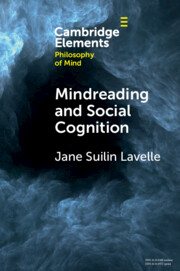Refine search
Actions for selected content:
1 results

Mindreading and Social Cognition
-
- Published online:
- 17 January 2022
- Print publication:
- 10 February 2022
-
- Element
- Export citation
